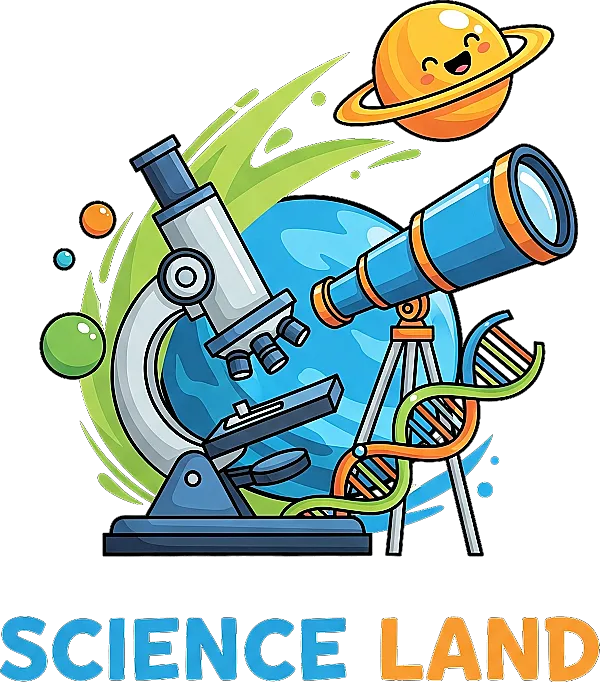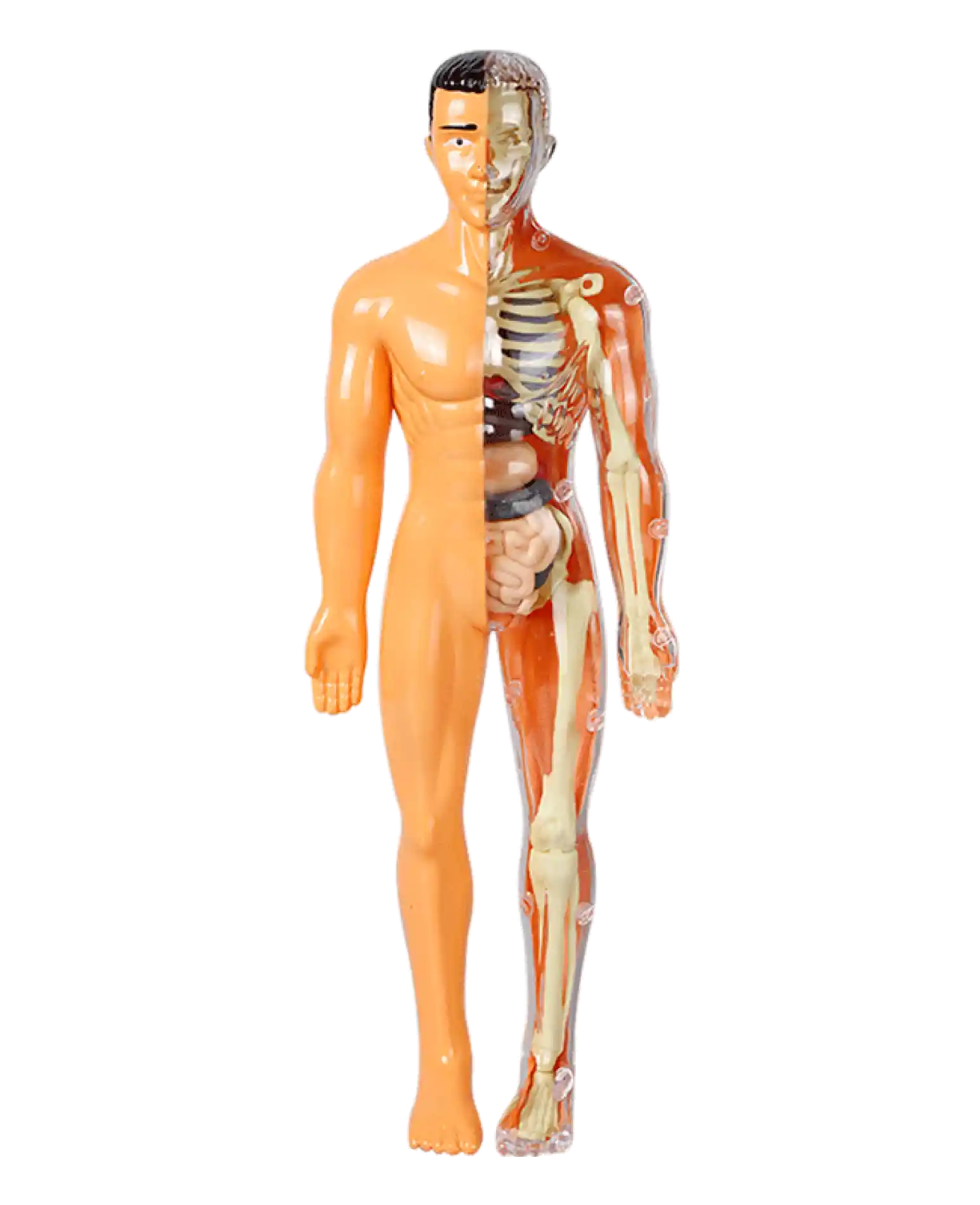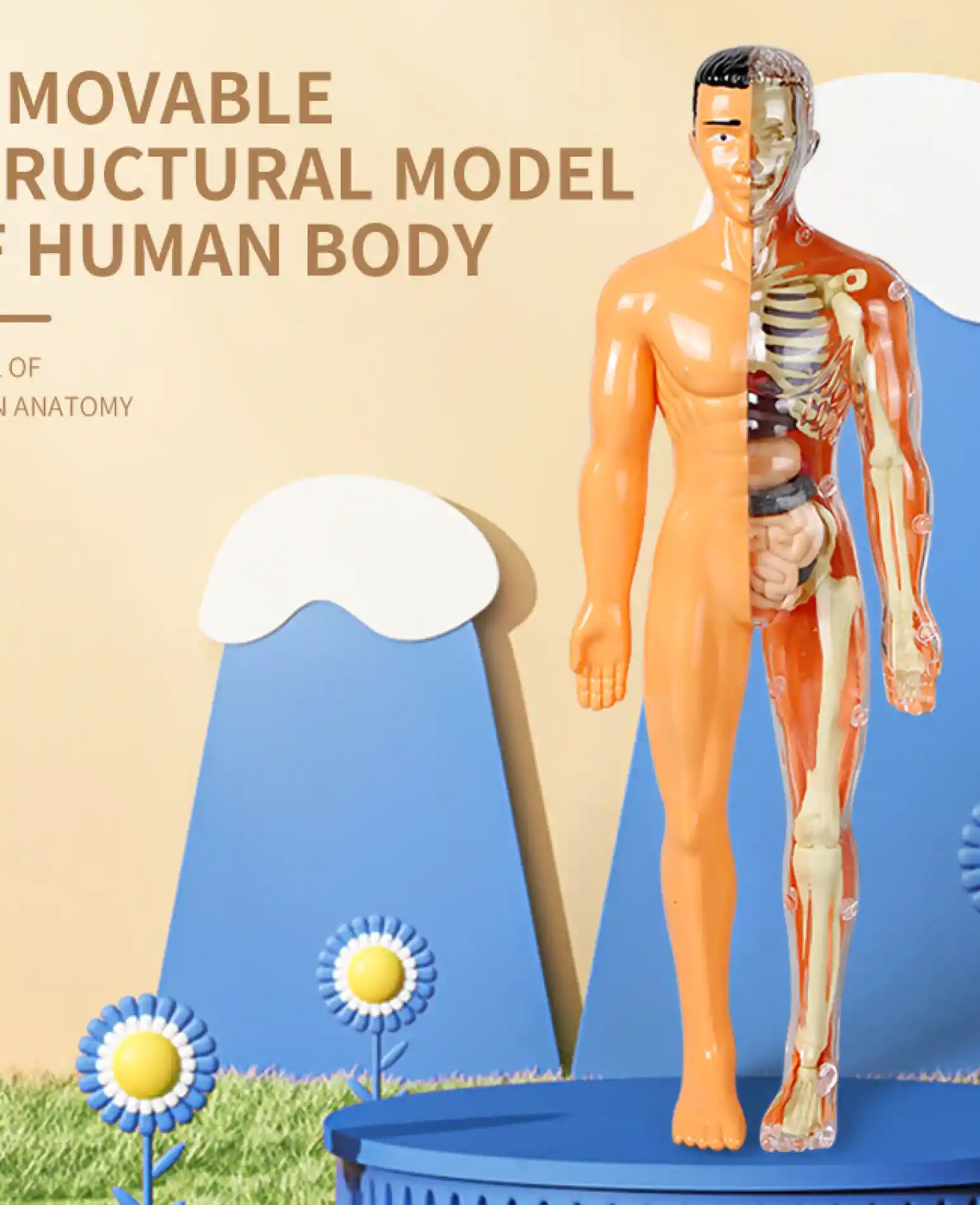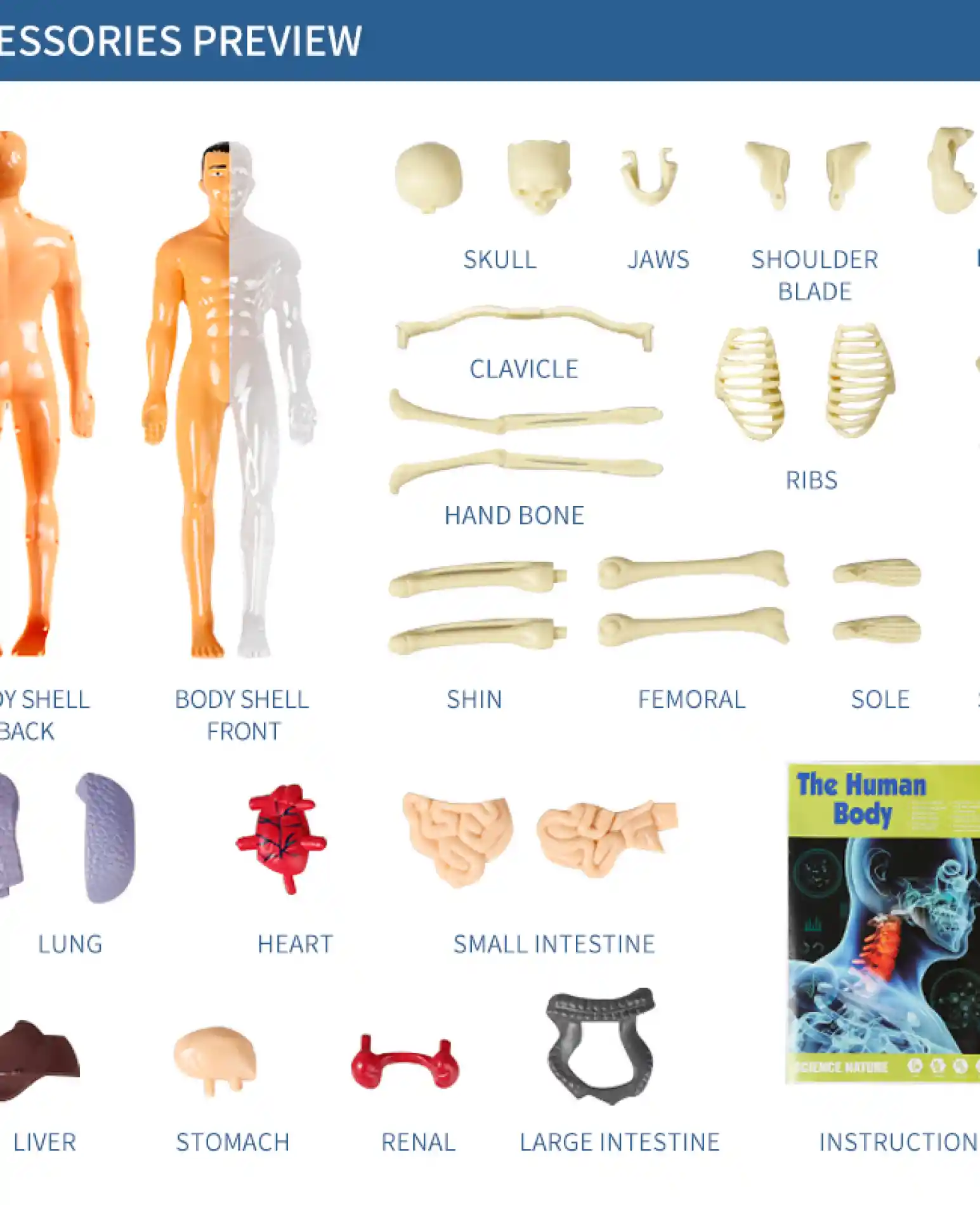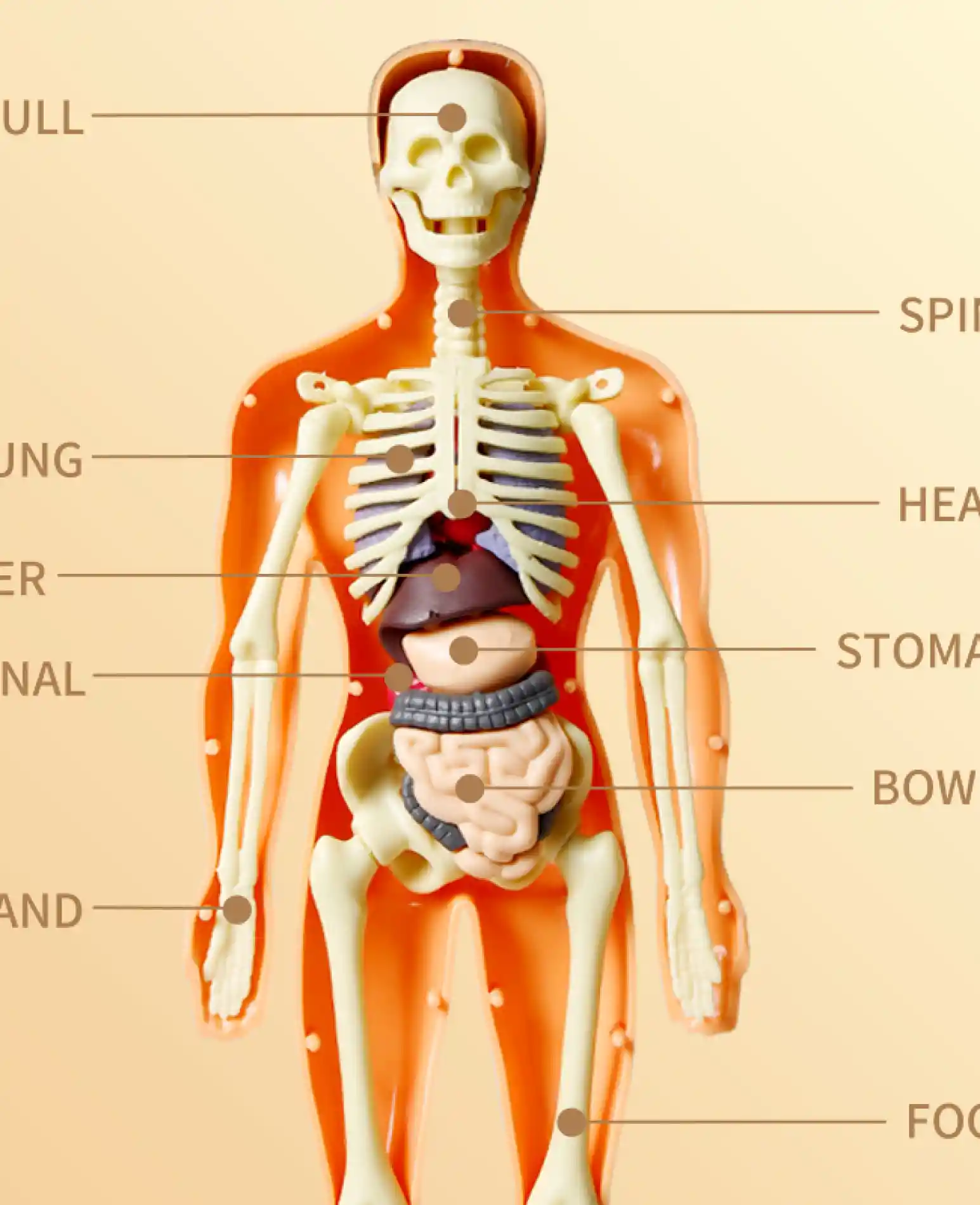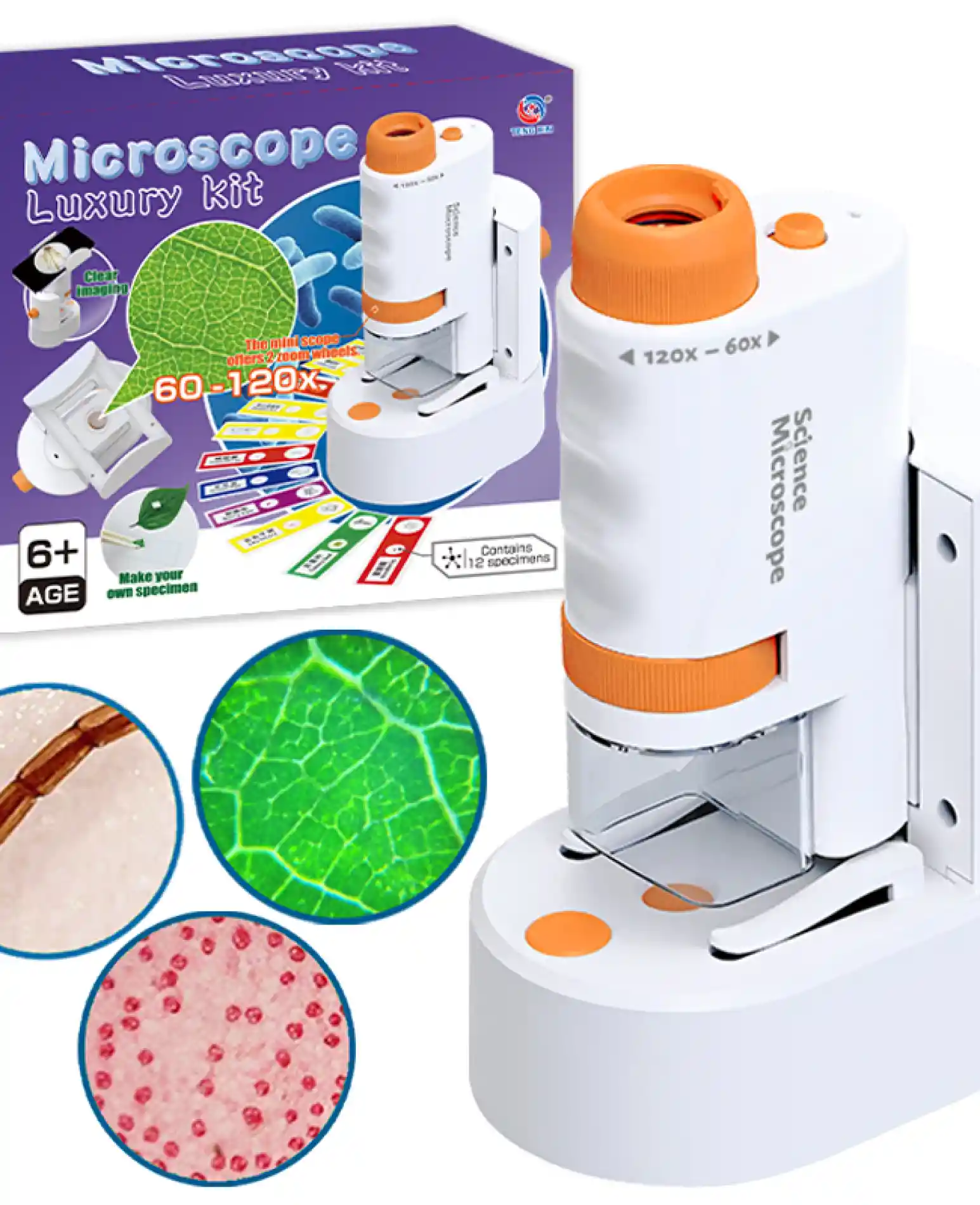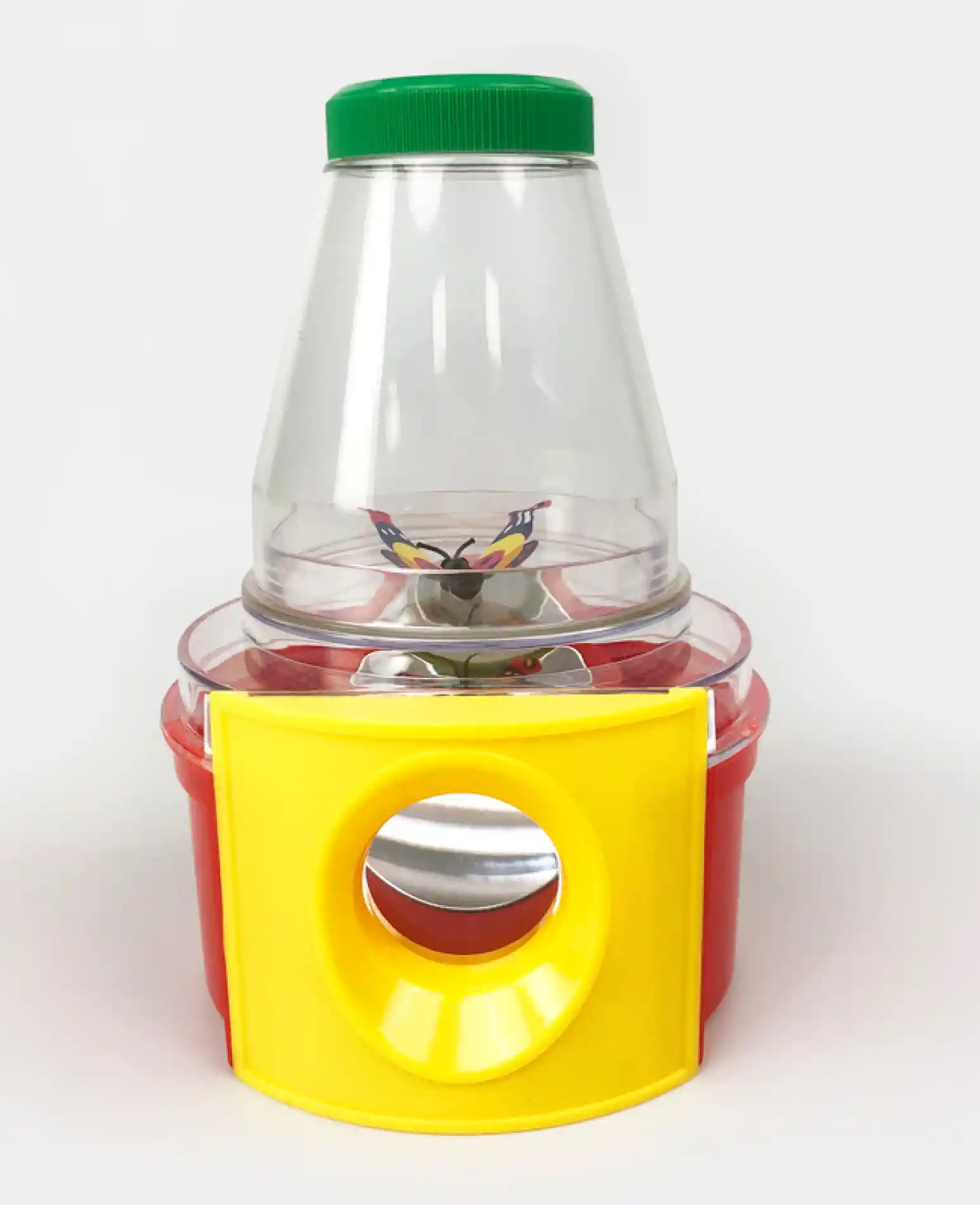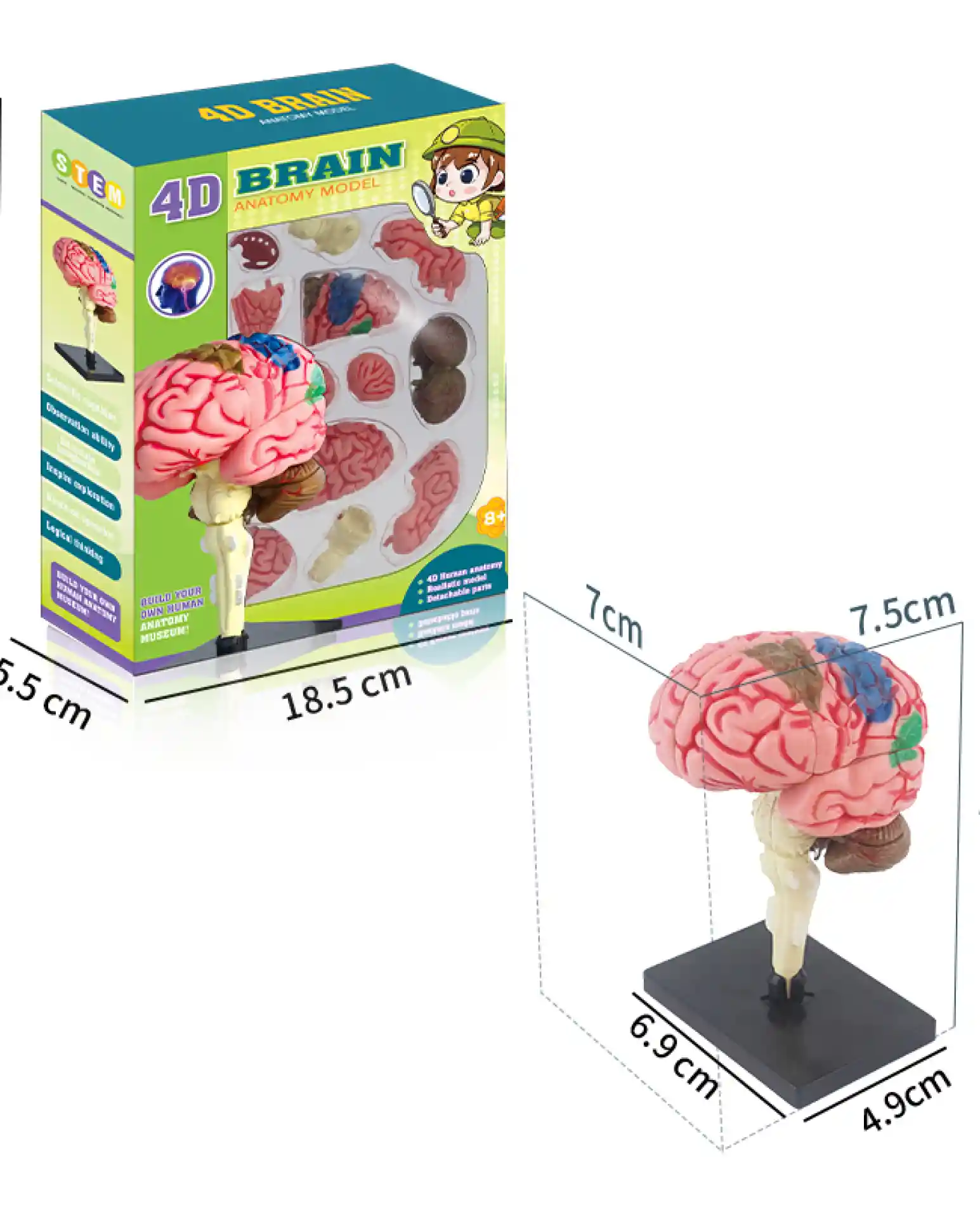Educational Human Body Model for Kids
The Human Body
The kit details:
Design: Half of the body appears in its natural form, while the other half is transparent, allowing for a view of the internal organs, bones, and muscles.
Content: The model contains an accurate representation of bones, muscles, and internal organs such as the heart, lungs, liver, stomach, and intestines.
Usage: A useful educational tool for teaching biology and anatomy, suitable for students, teachers, and hobbyists.
Materials: Made from durable, child-safe plastic, with vibrant colors that reflect realistic body details.
Age Group: Suitable for children and adults interested in anatomy and medical sciences.
The Human Body Kit Contains:
Detachable and Assembling Parts: Helps with interactive learning and reassembling the model for a hands-on educational experience.
Skeleton:
- Includes the skull, spine, rib cage, upper, and lower limbs.
- Provides an accurate understanding of bone structure and its connection to muscles and organs.
Internal Organs:
- Heart: To explain the function of the circulatory system.
- Lungs: To understand the mechanism of breathing.
- Liver: Illustrates its role in metabolism.
- Stomach and Intestines: To understand the digestive system.
- Kidneys: To explain the function of the urinary system.
Muscular System:
- Displays the locations and directions of the main muscles in the body.
- Helps in understanding body movement and the relationship between muscles and bones.
Brain and Nervous System:
- Illustrates the basic brain structure and the relationship between the central nervous system and the rest of the body.
Semi-Transparent and Semi-Solid Exterior Design:
- Allows for a dual view of internal and external anatomy.
- Provides a realistic experience for understanding the location of organs within the body.
Other Additions:
- Stabilizing Base: To maintain model stability during study and use.
- Instruction Manual: Contains information about body parts and their functions, helping students and teachers make the most of the model.
What We Learn from the Model:
- Interactive learning and hands-on practice.
- Improved visual understanding of organ locations.
- Suitable for students, teachers, and hobbyists.
- Supports science and medical curricula.
- Makes studying the human body fun and engaging.
